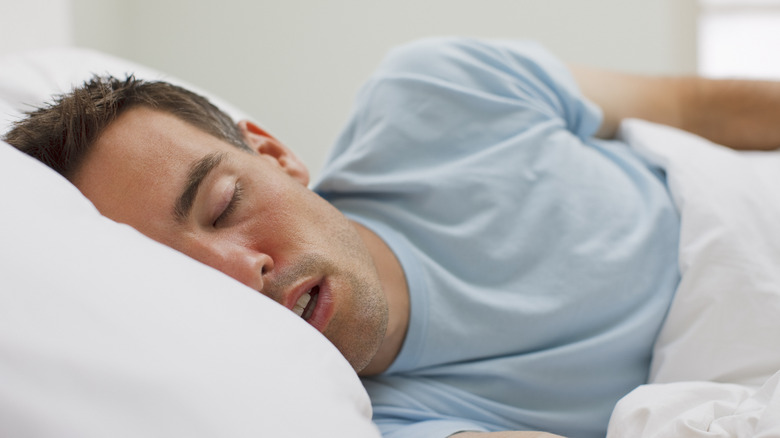What It Means If You Naturally Fall Asleep Fast
Sleep improves your health by reducing stress, keeping your mind focused, and healing your body. For you to get your recommended seven hours of sleep every night, you probably practice good sleep hygiene by going to bed at the same time every night, avoiding heavy meals within two hours of bedtime, and ensuring your bedroom is cool and dark. But are you getting quality sleep to feel rested enough to take on the next day?
According to the National Sleep Foundation, quality sleep depends on four factors. Your sleep efficiency is how much time you spend asleep in bed. How many times you wake up throughout the night and how long you stay awake during these sleep disturbances also contribute to your sleep quality. How quickly you fall asleep is called sleep latency, and falling asleep within 30 minutes of bedtime contributes to quality sleep.
While the Sleep Foundation says that you should fall asleep between 10 and 20 minutes after hitting the pillow, falling asleep faster than that isn't necessarily a good thing. Falling asleep less than eight minutes after going to bed could either mean you're not getting enough quality sleep or you have a sleep disorder.
You might be lacking quality sleep
Obviously, if you're used to going to bed at 10 and one night you stay up until midnight, you'll probably fall asleep pretty quickly. And let's face it, sometimes a hard workout in the morning followed by a hectic day at the office could have you crashing hard once your head hits the pillow. According to the Sleep Foundation, alcohol will also make you go to sleep faster, but you might not get quality sleep. Having a short sleep latency every night could mean you're not getting enough quality sleep at night. Because your body is aching for rest, it doesn't waste time to start your first sleep cycle.
Falling asleep quickly could also indicate sleep disturbances or a sleep disorder. Sleep disturbances can disrupt your total sleep time and result in you being tired the next day. A short sleep latency could mean a sleep disorder such as sleep apnea, where your breathing temporarily stops due to a block in your air flow (per Better Up). Circadian rhythm disorders disrupt your natural sleep-wake cycle and often affect night-shift workers and people who travel across time zones. Some people could lose sleep because of a movement disorder such as restless leg syndrome, according to Cedars Sinai.
Signs of sleep deficiency and sleep disorders
According to the Cleveland Clinic, you might not be getting quality sleep if you find yourself dozing off during the day. Sleep helps keep your mind focused, so a lack of quality sleep will have you making mistakes at work or having trouble concentrating. Poor sleep will also leave you feeling cranky and needing caffeine to get through your day.
Although sleep disorders such as insomnia might have a longer sleep latency of 30 minutes or more, other sleep disorders might have you waking up several times a night or really early in the morning. Sleep apnea is often characterized by snoring, gasping for air, or choking sounds while you're sleeping. Itching, aching, or creeping sensations in your legs during the night could be a sign of restless legs syndrome. Your doctor can look at your symptoms and medical history to make a sleep disorder diagnosis, but you also might need to participate in a sleep study to study your changes in brain waves, breathing rate, and eye movements while you sleep (per MedlinePlus).



